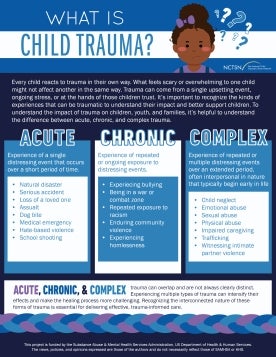
What Is Child Trauma?
Discusses the differences between acute, chronic, and complex trauma and how each trauma type uniquely affects children. Emphasizes the importance of recognizing their overlap to provide effective trauma-informed care.
The following resources on child trauma were developed by the NCTSN. To find a specific topic or resource, enter keywords in the search box, or filter by resource type, trauma type, language, or audience.

Discusses the differences between acute, chronic, and complex trauma and how each trauma type uniquely affects children. Emphasizes the importance of recognizing their overlap to provide effective trauma-informed care.
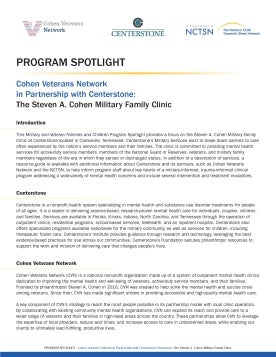
Provides a focus on the Steven A. Cohen Miliary Family Clinic at Centerstone.
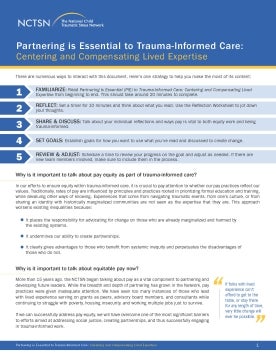
Explores how relationships with people with lived experience are essential to trauma-informed care by emphasizing the importance of shared decision-making, mutual respect, and authentic collaboration.
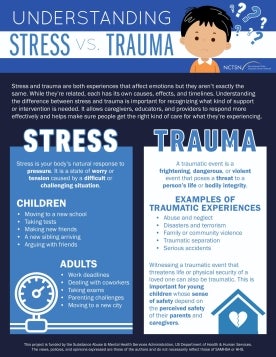
Highlights the differences between stress and trauma by explaining their unique causes, effects, and timelines, helping caregivers, educators, and providers respond with the appropriate support.
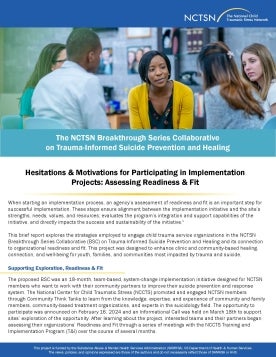
Explores strategies used to engage child trauma service organizations in the NCTSN Breakthrough Series Collaborative (BSC) on Trauma-Informed Suicide Prevention and Healing, emphasizing the importance of organizational readiness and fit.
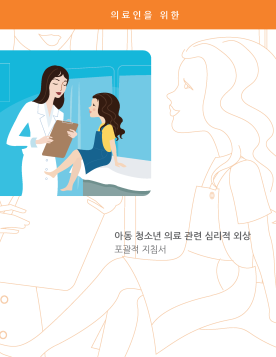
Offers a compendium of tools to guide medical professionals in effectively assessing and treating medical traumatic stress in children and families. This toolkit helps providers address the emotional, as well as the physical side of trauma.
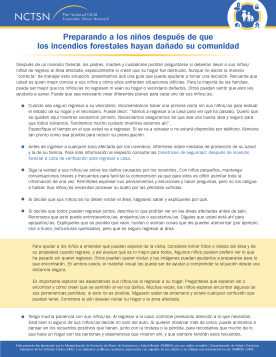
Offers guidance to parents and caregivers on deciding whether or not a child should return to their home or neighborhood after it was damaged in a wildfire. Translated 2024.
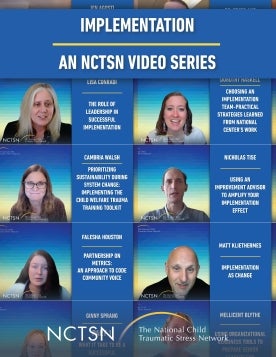
The NCTSN Video Series on Implementation was created by members of the National Child Traumatic Stress Network (NCTSN) to share lessons learned as organizations seek to implement trauma-informed practices or system change efforts.
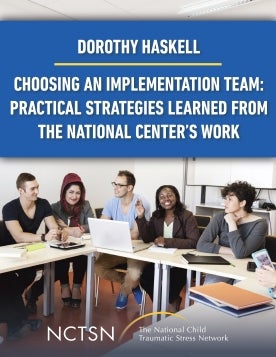
Discover valuable insights from the National Center’s experience using implementation teams from the Training & Implementation Program's Dorothy Haskell.
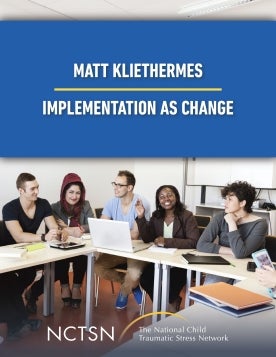
Join Matt Kliethermes, from the Children's Advocacy Services of Greater Saint Louis, as he shares lessons learned from the work that Project ASSIST has done on supporting the implementation of evidence-based practices and integrates research on the change process.
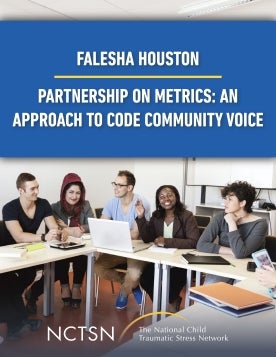
Falesha Houston of the National Center for Child Traumatic Stress takes us on a journey to think about how we collect information, what we include and how we use that information to further understand the outcomes.
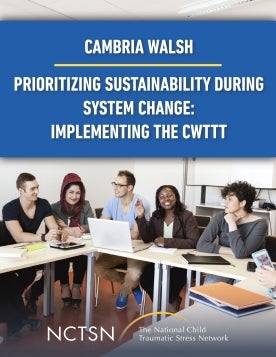
Learn about what sustainability is and why it is a critical part of implementation from NCTSN Affiliate Cambria Walsh from Cambria Walsh Consulting. This video explores how sustainability was built into the creation of Child Welfare Trauma Training Toolkit (CWTTT).